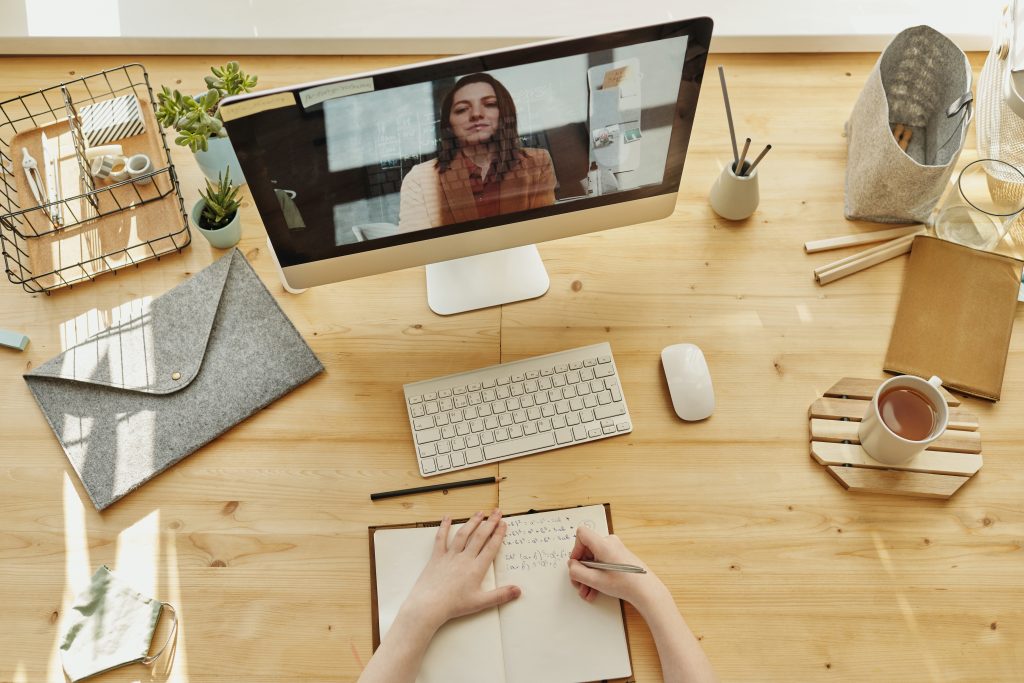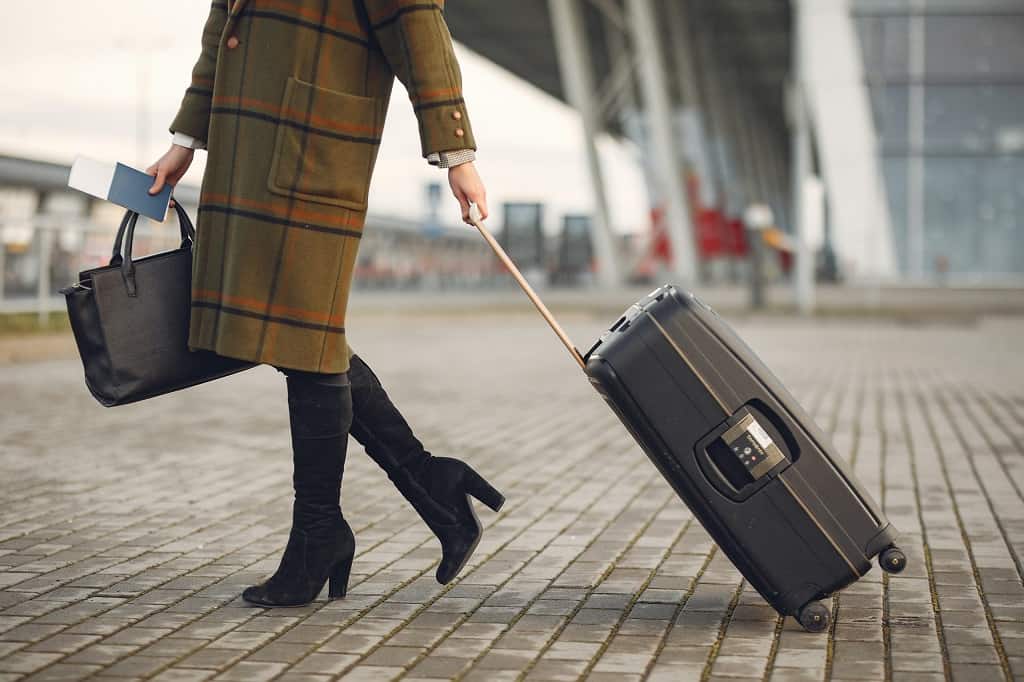Over time, all sectors of business have been negatively affected by the pandemic, either because of various regulations or because of the change in consumer behavior itself. And yet, one of the most affected and most directly affected remains tourism in all its forms. In this article, we will talk about how business tourism has changed and whether we expect it to fully recover. Business trips as we know them may not exist in the future – or will they?
At the moment, the idea of "normalcy" seems somewhat distant. Even in times when regulations are more relaxed, people's behavior and attitudes towards very natural physical contact are different. When COVID-19 halted travel around the world, business travelers had to quickly transition from in-person meetings and events to virtual platforms. What conclusion did this change lead us to? That people and business are extremely adaptable. Before the pandemic, companies had not even considered that many of the physical meetings could go virtual, and quite a few companies, especially in Bulgaria, had not even digitized many of their processes. And when it became imperative because another option just wasn't there, that change took maybe a few days. Almost as quickly, companies were able to provide their employees with conditions for fully remote work.
And what's next? What have we learned since the following changes? We have learned that whatever is necessary is possible. You can work only from home, you can save costs from office space, from business trips, you can replace personal contact with virtual ... somewhat. The question is whether we feel good like this and how long we want it to last.
And why does the suspension of business travel have a very negative effect on tourism in general? To begin with, we should mention that about 30 to 40% of all trips are for business. In 2018, business travel spending in the US grew to $327 billion, up 22% more than five years earlier. This represents around 40% of total travel spend – business travel obviously contributes to the success of companies, and the tourism industry also depends on corporate spend. The reason for this is not only the fact that a large percentage of tourism is for work, but also that business travelers spend more. They are more likely to pay for "business class" on airplanes and sleep in hotels and apartments that provide them with all the amenities they need. In most cases, they also have a relatively high daily budget, which they use in local restaurants.
Historically, business travel has been more volatile and slower to recover than leisure travel following economic downturns. According to numerous reports, any financial crisis is tantamount to the end of business trips. This is, of course, a logical conclusion as CEOs identify the potential savings from business travel and try to limit those costs in the long run. During the 2008-2009 global recession, international business travel from the US declined by more than 13%, compared to a decline of only 7% in international pleasure travel. And while international pleasure travel has fully recovered in just two years, international business travel has taken a full five years. But still, at a certain point, they have reached their previous levels.

In recent months, companies have seen that and online contact works … but not with the same power as in-person contact. Companies are scrutinizing the information they can glean about the work process during social isolation. One of the first questions everyone will ask themselves is: "Is video link really enough?" Without a doubt, it saves costs and many companies have already proven that even during isolation they can only have virtual contact, be it between employees or with customers, and it works well. But isn't there something missing in these meetings? Isn't it especially important to meet in person during a business trip, shake hands with the person across the street and enjoy dinner together? It's hard to imagine that large-scale deals like company mergers, sometimes life-changing for thousands of employees, should be done through Zoom.
Humans are social animals and need social contact, communication and connection with others. It is not by chance that the importance of soft skills in business has increased in recent years. Every good leader or manager knows how important a personal relationship is with each person on the team, how important it is to build cohesion and a pleasant working environment.
Although virtual contact allows us to easily connect even with people on the other side of the world, to communicate extremely quickly, yet it is not completely personal, the human feeling for the other party is lost, and from there building trust becomes more difficult and the impact of communication itself weakens.
All these things lead us to think that business travel will resume sooner or later. The question is to what extent and when? We have yet to find out exactly how this industry will develop and what the determining factors are. Of course, it is expected that after the mass release of a vaccine against COVID-19, the tourism sector, as well as everyone else affected by the pandemic, should start to recover. But what will change in consumer behavior?
The accommodation requirements are now different. In the past, business travelers mainly booked hotels offering a variety of amenities. Already, in view of health safety, tourists prefer to rent apartments for the purpose of privacy. And this is actually not so strange, because the association with "Airbnb apartment" is no longer a place mainly for people on a limited budget, but on the contrary. Apartments for short term rental offer a much wider variety than hotels - the guest can choose between a luxurious maisonette in the city center and a country house in the outskirts.
Another crucial factor nowadays is hygiene. Of course, it has always been of great importance, but in recent months it is not only associated with convenience and a basic requirement. Guests are now thinking more consciously about their health and the first requirement in this regard is the hygiene of the place where they will stay. This trend is noticeable in absolutely all tourists, regardless of their reason for travel. That's why, for example, we from Flat Manager, we have introduced strict rules to maintain a high level of cleanliness in our apartments - checks before each accommodation, disinfection and application of special nanotechnology, creating a layer on the surfaces that does not allow the retention of microbes.

Since we are talking about business travelers, let's not forget that almost all people are currently working remotely. Even if an employee visits, for example, Sofia for a meeting with a client, most of the time he will be working from the apartment he has rented for his stay. Therefore, conveniences such as fast internet, a comfortable dining table, a nice coffee machine and a corner with enough light to work are increasingly valued, and we can even say that they are becoming mandatory.
What is expected is that business tourism will gradually recover. People will feel more comfortable traveling within the country initially. The factors for this are again more than one. A major concern for travelers right now is the uncertainty about what crisis management measures could be imposed at any moment – for example, border closures that would make it difficult to get home. Getting around short distances can also happen by private car, and even if you're traveling with someone, traveling by land saves us going through places like airports, where we'll inevitably have contact with more people.
In conclusion, we can say that the situation is indeed unusual and perhaps more difficult in economic terms than any other we have encountered in recent years. But despite this, the social and human element in communication remains as important for both individuals and businesses. While the personal touch, the human approach and creativity are valued, and if business is not completely replaced by technology, business travel and personal meetings will be. We can only look forward to the moment when we can all enjoy worry-free travel again.



